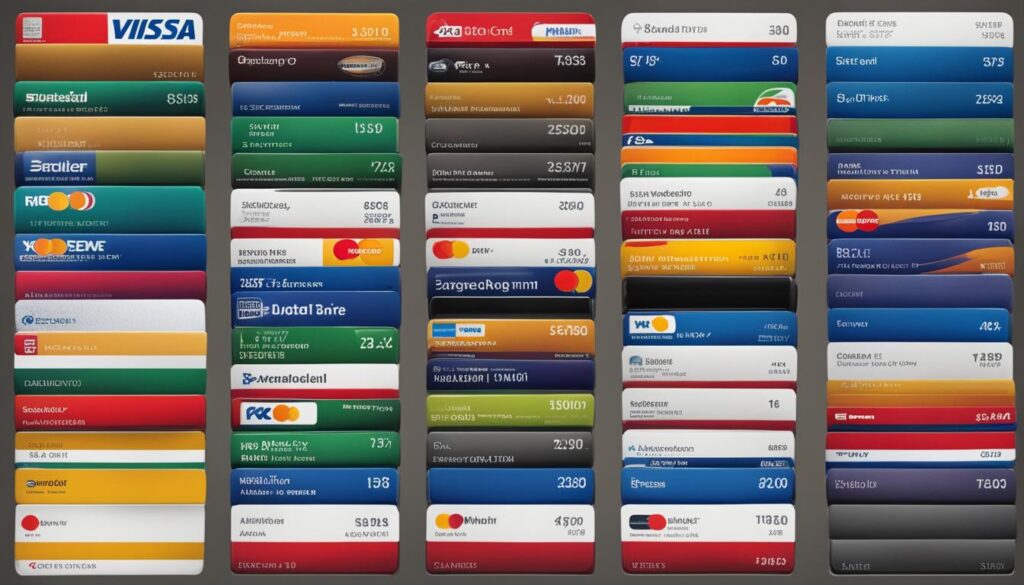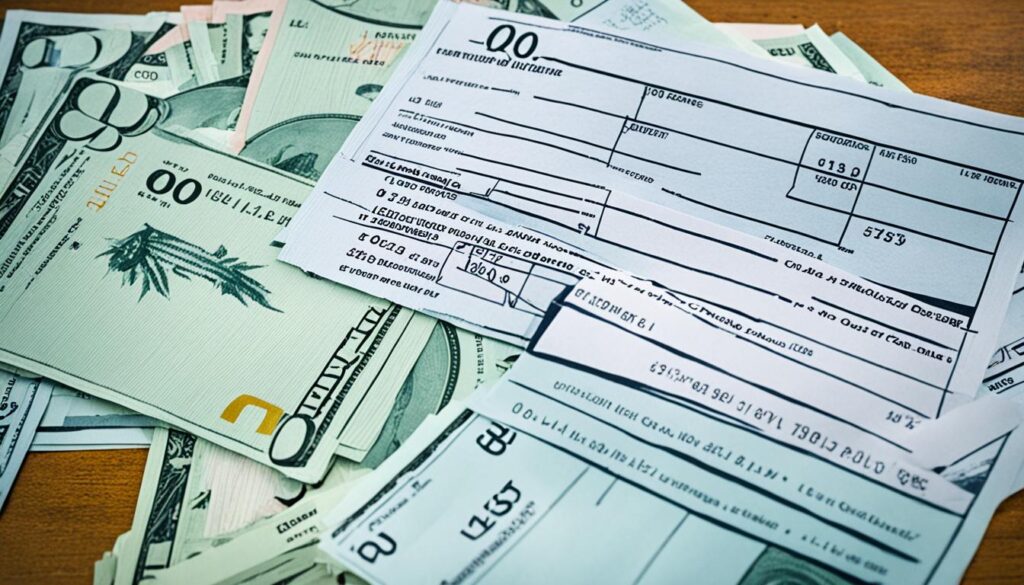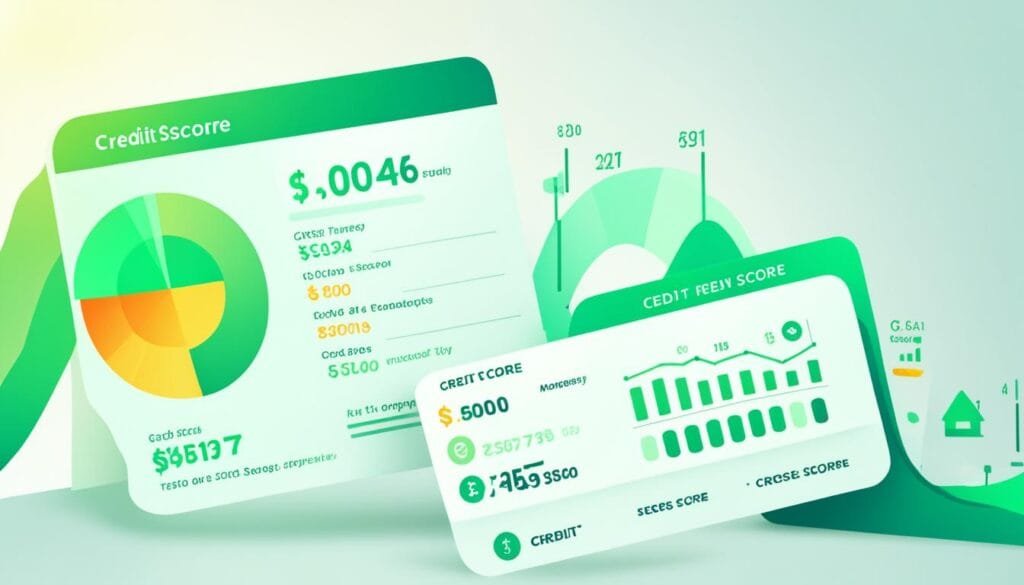If you’ve ever found yourself in a tough financial situation, you know just how stressful and overwhelming it can be. Whether it’s mounting credit card debt, late bills, or a low credit score, the impact on your financial well-being can feel debilitating. But there is hope! By implementing smart budgeting strategies, you can take control of your finances and work towards repairing your credit.
Let me introduce you to Lisa, a hardworking single mother who once found herself drowning in debt and struggling to make ends meet. With countless bills piling up and a credit score that was in dire need of repair, she felt like there was no way out. That is until she discovered the power of budgeting.
Lisa decided to create a budget to regain control of her financial situation. She started by writing down all her sources of income and tracking all her expenses. This allowed her to see exactly where her money was going and identify areas where she could cut back.
With her newfound budgeting skills, Lisa was able to prioritize her bills and make timely payments. By communicating with her creditors and negotiating payment plans, she prevented late fees and avoided further damage to her credit score.
As Lisa continued to stick to her budget, she started to see progress. Her credit card payments became more manageable, and she was able to reduce her overall debt. With each small victory, Lisa’s confidence grew, and she became even more motivated to continue on her credit repair journey.
Now, Lisa is proud to say that she has successfully repaired her credit. By diligently budgeting, she was able to pay off her debts, increase her credit score, and set herself up for a brighter financial future.
If Lisa can do it, so can you. By following these budgeting strategies, you too can take control of your finances and work towards repairing your credit.
Key Takeaways:
- Budgeting is a crucial aspect of credit repair, helping you take control of your finances.
- By tracking expenses and prioritizing bills, you can make timely payments and prevent further damage to your credit score.
- Stick to your budget and make gradual progress, celebrating each small victory along the way.
- Learn from Lisa’s success story and start budgeting today to repair your credit and build a brighter financial future.
Avoid Immediate Disasters
When facing a financial shortage, it’s crucial to take proactive measures in order to avoid immediate disasters. By implementing certain strategies, individuals can prevent potential hardships and protect their financial well-being.
“Planning and communication are key when it comes to avoiding immediate disasters. Take control of your situation and protect yourself from eviction, overdue bills, and financial distress.”
Requesting Bill Extensions
One effective step is to request bill extensions from creditors. By reaching out to utility companies, credit card providers, and other bill collectors, individuals can explain their situation and negotiate for extensions. This temporary relief allows them to free up money and allocate it towards essential expenses.
Payment Plans
Another option is to explore payment plans. Many bill collectors offer flexible payment options that can help individuals manage their financial obligations without overwhelming their budgets. By setting up a structured payment plan, individuals can break down larger bills into manageable monthly installments.
Preventing Eviction
For individuals facing the risk of eviction, it’s important to communicate with landlords and explain the financial difficulties. By negotiating an alternative payment schedule or requesting a temporary reprieve, individuals can buy themselves time to meet their rental obligations while also focusing on improving their overall financial situation.
Freeing Up Money
In order to prioritize essential expenses, individuals should identify areas where money can be freed up. Analyzing current spending habits and cutting back on non-essential items can provide additional funds to cover immediate needs. By making small adjustments and practicing frugality, individuals can redirect resources towards the most critical expenses.
By avoiding immediate disasters through bill extensions, payment plans, preventing eviction, and freeing up money, individuals can take control of their finances and protect themselves from financial pitfalls.
| Benefits | Action Steps |
|---|---|
| Prevents eviction | Communicate with landlords and negotiate payment extensions or alternative schedules. |
| Frees up money | Identify non-essential expenses and cut back to redirect funds towards essential needs. |
| Avoids overdue bills | Request bill extensions and negotiate payment plans with creditors. |
| Reduces financial distress | Take proactive measures to prevent immediate disasters and protect financial well-being. |
https://www.youtube.com/watch?v=RuCePoW-BLY
Review Credit Card Payments and Due Dates
Managing credit card debt requires careful review of credit card payments and due dates. Making only minimum payments can have serious consequences for your credit score. Late fees and high-interest rates can further compound the debt, making it challenging to pay off. To take control of your credit card debt and work towards repairing your credit, it is essential to understand the importance of timely payments and avoiding late fees.
One of the first steps in managing credit card payments is to review the terms and conditions of your credit card agreements. Take note of the minimum payment requirement and the due date for each credit card. By understanding these details, you can plan your budget accordingly and avoid missing payments.
Remember: Missing a payment or making only the minimum payment can lead to detrimental effects on your credit score and overall financial health. Late payments can result in penalties, such as late fees and increased interest rates, further adding to your credit card debt.
To ensure timely payments, it is advisable to set up payment reminders, either through your credit card issuer’s online banking platform or your personal calendar. These reminders will help you stay on top of due dates and prevent any unnecessary late fees.
Tip: If you find it challenging to manage multiple credit card payments and due dates, consider consolidating your credit card debt into a single loan or balance transfer credit card with a more favorable interest rate.
By reviewing your credit card payments and due dates regularly, you can effectively manage your credit card debt and avoid unnecessary fees and interest charges. This proactive approach will contribute to repairing your credit and improving your overall financial well-being.

Prioritizing Bills
Prioritizing bills is crucial for effective budgeting when striving for credit repair success. By establishing a clear payment schedule and determining which bills need to be paid first, individuals can stay on track and avoid falling into further financial distress.
Creating a prioritized payment schedule is essential for managing cash flow and ensuring that crucial expenses are met on time. Start by listing all outstanding bills, including rent or mortgage payments, utilities, credit card bills, and any other recurring expenses. Take note of the due dates and the consequences of missing payments, such as late fees or adverse credit impact.
Once you have a complete list, assess your available funds and align your payment schedule with your paydays. Consider allocating a specific portion of each paycheck to cover the highest-priority bills first. By doing so, you can prevent accumulating more debt and work towards catching up on any overdue payments.
Communication with bill companies is key during this process. Reach out to your creditors, explain your situation, and express your commitment to catching up on your payments. Many bill companies are willing to work with customers who show genuine efforts to resolve their debts. They may offer repayment plans, reduced interest rates, or even extend your payment deadlines to accommodate your financial circumstances.
Remember, honesty and transparency are crucial when communicating with bill companies. Provide them with accurate information regarding your available funds and financial limitations. This will enable them to assist you better and offer solutions that align with your budgeting goals.
In summary, prioritizing bills involves establishing a payment schedule based on your paydays, communicating with bill companies, and allocating funds to meet your highest-priority expenses first. By effectively managing your bills, you can work towards achieving a positive status and improving your credit over time.
Sample Prioritized Payment Schedule:
| Bill | Due Date | Payment Amount |
|---|---|---|
| Rent/Mortgage | 1st of the month | $1,200 |
| Utilities | 5th of the month | $150 |
| Car Loan | 10th of the month | $300 |
| Credit Card A | 15th of the month | $100 |
| Credit Card B | 20th of the month | $50 |
By following this prioritized payment schedule, individuals can ensure that their most critical bills are paid on time, reducing the risk of additional fees and penalties. This disciplined approach allows for catch-up time and paves the way for a positive financial status and improved credit score.

Ignore the 10% Savings Rule, For Now
While saving is important, it may not be feasible when facing financial difficulties. It’s crucial to prioritize debt repayment and achieving financial stability before focusing on savings. By ignoring the traditional 10% savings rule and allocating funds towards debt repayment first, individuals can work towards eliminating debt and improving their overall financial situation.
When individuals are burdened with debt and facing financial instability, it becomes imperative to make strategic decisions to regain control of their finances. In such circumstances, strict budgeting and debt repayment take precedence over saving for the future.
The traditional financial advice of saving 10% of your income is not applicable during times of financial hardship. Instead, prioritizing debt repayment allows individuals to tackle their outstanding debts head-on and establish a solid foundation for future financial endeavors.
Why prioritize debt repayment before savings?
Debt can have a significant impact on an individual’s financial stability and creditworthiness. By prioritizing debt repayment, individuals can:
- Reduce the overall debt burden
- Improve credit scores
- Minimize interest payments
- Alleviate financial stress
Eliminating debt takes time, effort, and financial discipline. It’s essential to allocate the maximum amount of available funds towards repaying outstanding debts to expedite the process.
Instead of allocating a fixed percentage of income towards savings, individuals should redirect those funds towards debt repayment. This approach ensures that debts are tackled swiftly, laying the groundwork for financial stability in the future.
“By ignoring the traditional 10% savings rule, individuals can focus on eliminating debt and building a solid financial foundation for the future.” – Financial Expert
Incremental savings as a stepping stone
While debt repayment takes priority, it’s important to acknowledge the value of savings and its role in long-term financial stability. After making significant progress in debt reduction, individuals can gradually shift their focus towards saving. Incremental savings, even if it’s a small amount, contribute to future financial security.
Here’s a table showcasing the progression from debt repayment to incremental savings:
| Phase | Action |
|---|---|
| Phase 1 | Allocate maximum funds towards debt repayment |
| Phase 2 | Establish an emergency fund with a small savings contribution |
| Phase 3 | Gradually increase savings contributions as debt decreases |
| Phase 4 | Continue growing savings while maintaining responsible debt management |
By following this progression, individuals can strike a balance between debt reduction and savings accumulation. It allows for a structured approach that ensures both short-term financial stability and long-term financial freedom.
Remember, overcoming debt and achieving financial stability require dedication and discipline. Prioritizing debt repayment while gradually establishing incremental savings sets the stage for a stronger financial future.
Review Your Past Month’s Spending
When it comes to effective budgeting, reviewing your past month’s spending is a crucial step. This process allows you to gain insights into your financial habits, identify areas where adjustments are needed, and make informed decisions to better manage your money.
Utilize Online Banking and Budgeting Software
One of the easiest ways to review your spending is by leveraging the power of online banking and budgeting software. These tools provide a convenient and centralized platform to track your expenses, categorize your transactions, and monitor your overall financial health.
Categorize Your Expenses
With online banking and budgeting software, you can categorize your expenses based on different budgeting categories such as groceries, utilities, transportation, and entertainment. This categorization helps you visualize where your money is going and identify areas where you may be overspending.
Track Every Cent Spent
To get a comprehensive understanding of your spending habits, it’s important to track every cent you spend. This means diligently recording all your transactions, whether they are cash or card payments. By doing so, you’ll have an accurate representation of your expenses and can make more informed financial decisions.
Make Necessary Adjustments
Reviewing your past month’s spending allows you to make necessary adjustments to your budget. If you realize that you’re spending a significant portion of your income on non-essential items, you can cut back in those areas and reallocate those funds towards more important financial goals, such as paying off debt or saving for emergencies.
By reviewing your past month’s spending and making adjustments accordingly, you’ll be able to take control of your finances, make smarter financial decisions, and work towards your credit repair goals.
Negotiate Credit Card Interest Rates
Individuals with good credit have the opportunity to negotiate lower interest rates on their credit cards, which can result in significant savings. By proactively reaching out to credit card companies and initiating negotiations, individuals can potentially receive interest rate reductions and enjoy the benefits of lower interest charges.
When contacting credit card companies, it’s important to present a compelling case for why the interest rate reduction is justified. Here are a few tips to help you negotiate effectively:
- Research: Familiarize yourself with current interest rates and promotions offered by other credit card companies. This information can serve as leverage during negotiations.
- Highlight Good Credit: Emphasize your good credit history and responsible payment behavior. Credit card companies are more likely to consider reducing the interest rate for customers who have demonstrated reliability.
- Persistence: Don’t be discouraged if your initial request is denied. Continue to emphasize the value you bring as a customer and make a persuasive case for the interest rate reduction.
“Negotiating lower interest rates on credit cards can save you a significant amount of money in the long run. It’s important to be persistent and advocate for yourself to secure a favorable outcome.”
Remember, credit card companies are not obligated to initiate interest rate reductions. It’s up to individuals to take the initiative and negotiate for lower rates. By exploring this option, borrowers can reduce the amount of interest they pay, accelerate debt repayment, and ultimately improve their financial situation.
Comparison of Interest Rates
| Credit Card Company | Standard APR | Reduced APR (Negotiated) |
|---|---|---|
| XYZ Bank | 19.99% | 17.99% |
| ABC Credit Union | 20.99% | 18.49% |
| 123 Financial | 21.99% | 19.99% |
Are Budgeting Tips Included in the Best Credit Repair Books/Resources for 2023?
Yes, the best credit repair resources for 2023 include valuable budgeting tips to help individuals manage their finances effectively. These resources understand the importance of establishing good financial habits alongside repairing credit, and offer practical advice for creating and sticking to a budget.
Seek Out New Sources of Income
If your current budget is not balancing or if you find yourself barely scraping by, it may be necessary to seek out new sources of income. Additional income can make a significant difference in your financial situation and help you work towards credit repair.
Consider working overtime at your current job, if it is available. This allows you to make extra money without taking on a second job. However, if working overtime is not an option or doesn’t provide enough income, it may be worth considering a second job. While taking on additional work may not be ideal, it can provide the financial stability needed to improve your situation.
You might also explore the possibility of finding a higher-paying job. Look for job opportunities within your field or consider expanding your skill set to pursue a career with better earning potential. While changing jobs may require some adjustment, it can lead to long-term financial benefits and help you pay off debt faster.
FAQ
What is the importance of budgeting for credit repair?
Budgeting is crucial for credit repair as it helps individuals take control of their finances and prevent financial disasters. It allows for effective management of expenses and allocation of funds towards repairing credit.
How can I avoid immediate financial disasters?
To avoid immediate financial disasters, you can request bill extensions or payment plans from creditors. By communicating with landlords and bill collectors, you can negotiate extensions to prevent eviction and free up money for essential expenses.
Should I review my credit card payments and due dates?
Yes, reviewing credit card payments and due dates is crucial for managing credit card debt. Making only the minimum payments can lead to a disastrous credit score. By understanding the importance of timely payments and avoiding late fees, you can take control of your credit card debt and work towards repairing your credit.
How can I prioritize my bills effectively?
Prioritizing bills involves going through all of them and determining which ones need to be paid first. By setting up a payment schedule based on your paydays and communicating with bill companies, you can catch up on payments, adhere to a stricter budget, and work towards achieving a positive status to improve your credit.
Should I focus on saving money or repaying debt first?
It’s important to prioritize debt repayment and achieving financial stability before focusing on savings. By allocating funds towards debt repayment first, you can work towards eliminating debt and improving your overall financial situation.
Why is it important to review my past month’s spending?
Reviewing your past month’s spending is essential for effective budgeting. Utilizing online banking and budgeting software can help categorize expenses and make necessary adjustments. By tracking every cent spent and dividing expenses into categories, you can gain a comprehensive understanding of your spending habits and make informed decisions to adjust your budget accordingly.
Can I negotiate my credit card interest rates?
If you have good credit, you can take advantage of negotiating credit card interest rates. By reaching out to credit card companies and requesting interest rate reductions, you can potentially lower your interest rates and save money on future charges. It’s important to proactively initiate these negotiations as credit card companies are unlikely to initiate rate reductions on their own.
What should I do if my current budget is not balancing or if I am barely scraping by?
If your current budget is not balancing or if you are barely scraping by, it may be necessary to seek out new sources of income. This can include working overtime, getting a second job, or even considering a higher-paying job. While the nature of new work may not be ideal, prioritizing financial stability is important, and seeking new sources of income can provide you with the means to improve your financial situation and work towards credit repair.

